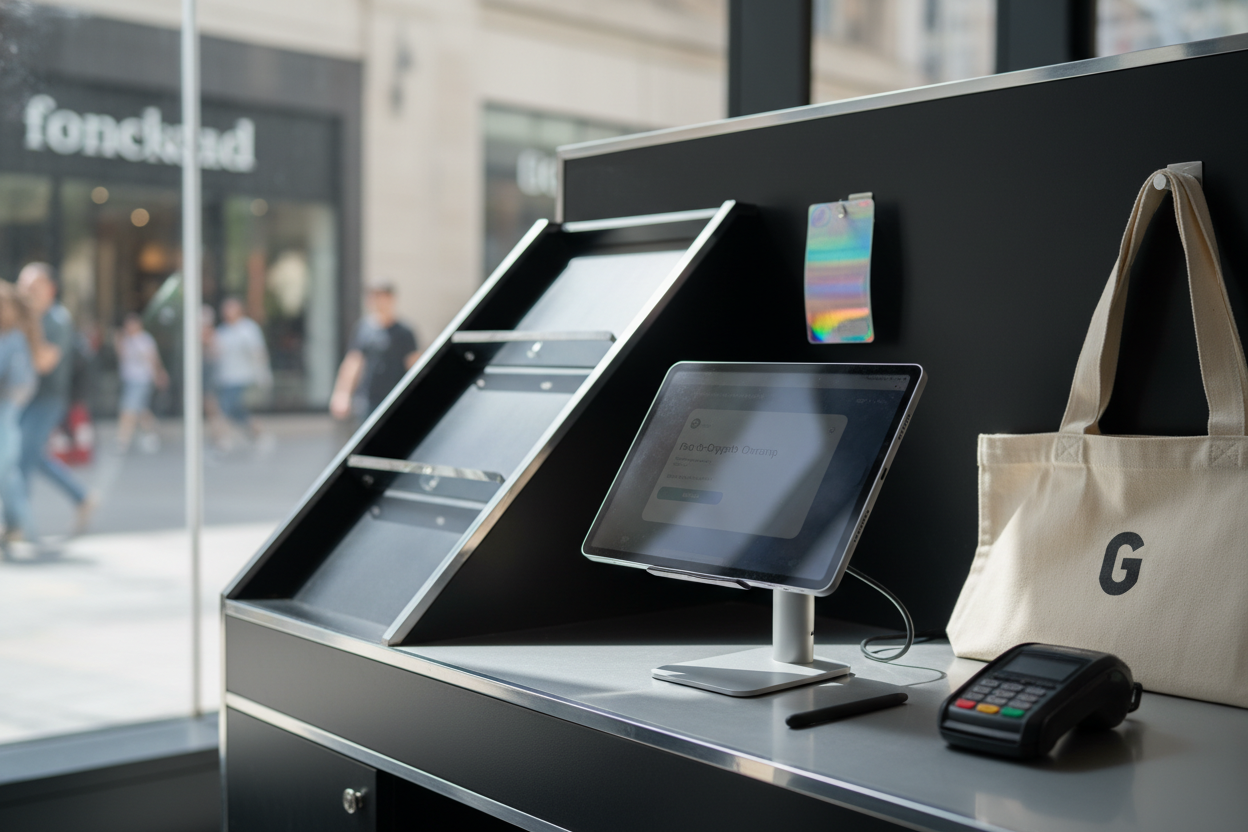
Opening a business account with a crypto-friendly bank in 2024 is no longer the regulatory minefield it once was, but you still need a tactical approach to get approved and stay compliant. Whether you’re running a DeFi startup, an NFT marketplace, or a Web3 consultancy, having the right banking partner can make or break your operations. Let’s break down the process step by step so you can open your crypto bank business account with confidence.

Why Crypto Business Banking Matters in 2024
Traditional banks are still playing catch-up, but leading crypto banks now offer robust solutions for holding, trading, and transacting in both fiat and digital assets. The latest regulatory clarity from U. S. agencies like the OCC and Federal Reserve means banks can officially participate in certain crypto activities, like custody and distributed ledger networks, without prior permission. However, this green light comes with strict expectations for risk management and compliance.
The bottom line? Your business needs a compliant, scalable banking solution that won’t freeze your funds at the first sign of volatility. That’s where specialized crypto-friendly institutions like BankProv, Bankera, and Cashaa come in.
Step 1: Assess Your Regulatory Terrain
Before even choosing a bank, get familiar with the current regulatory climate for crypto businesses in your jurisdiction. In 2025, U. S. regulators have explicitly stated that banks can engage in select crypto activities, but every institution will assess risk differently. Internationally, requirements vary even more.
- Check if your business model (exchange, wallet provider, DeFi protocol) requires specific licenses
- Understand AML/KYC obligations: These are non-negotiable for any reputable bank
- Be ready to explain your transaction flows: Banks want to know exactly how you’ll move money and assets
If you’re unsure about compliance requirements or documentation standards for your region or sector, consult an expert before applying.
Step 2: Choose Your Crypto-Friendly Bank Wisely
Not all banks are created equal when it comes to digital asset support. Some of the best options for 2024-2025 include:
Top Crypto-Friendly Business Banks for 2024
-

BankProv: One of the oldest crypto-friendly U.S. banks, BankProv offers API-driven business banking, multi-currency support, and unlimited deposit insurance. It caters to exchanges, OTC desks, and blockchain startups.
-

Bankera: Tailored for crypto exchanges and mining operations, Bankera provides business accounts with SEPA/SWIFT transfers, multi-currency IBANs, and integrated crypto payment processing.
-

Cashaa: Specializing in crypto business accounts, Cashaa offers GBP and EUR IBANs, multi-currency wallets, and API integrations for seamless crypto-fiat operations.
-

Tap: Tap delivers multi-currency business accounts with individual IBANs, access to 50+ cryptocurrencies, and instant payments via the Tap Network, making it ideal for global crypto businesses.
Look beyond marketing claims, dig into each bank’s actual onboarding requirements, account types (multi-currency IBANs are a huge plus), deposit insurance limits, and integration options (APIs for automated treasury management). For example:
- BankProv: API-powered banking with unlimited deposit insurance, ideal for exchanges and high-volume traders
- Bankera: Tailored solutions for mining operations and exchanges; supports both fiat and major cryptocurrencies
- Cashaa: GBP/EUR IBANs plus seamless integration for international payments; strong focus on compliance
This is also where you’ll want to compare fees (transaction costs can eat into margins fast), deposit/withdrawal limits, and any value-added services like instant settlements or OTC desks.
Step 3: Prepare Bulletproof Documentation
Banks are under intense pressure to prevent illicit activity in crypto markets, so expect their onboarding teams to scrutinize every document you provide. Here’s what you’ll need:
The most common requirements include:
- Business registration documents: Proof of legal existence (articles of incorporation or LLC certificate)
- EIN (Employer Identification Number): Issued by the IRS (for U. S. -based entities)
- Ultimate Beneficial Owner (UBO) details: Names and IDs of anyone with significant control over the company
- AML/KYC policies: Detailed documentation outlining how your company prevents money laundering or terrorist financing
If your company operates globally or has complex ownership structures (DAOs included), be ready to provide extra layers of transparency, banks will ask.
The Compliance Factor: Proactive Measures Pay Off
Banks aren’t just looking at paperwork, they want to see real-world commitment to compliance. Implement robust AML/KYC checks on all customers, monitor transactions for suspicious activity using automated tools, and maintain up-to-date licenses where required. This not only accelerates onboarding but also builds long-term trust with your bank, crucial when scaling up operations or navigating market turbulence.
Ready for the next steps? Keep reading as we dive into due diligence processes and negotiating account terms so you can optimize your crypto business banking experience in 2024. For more granular guidance on each step of this journey, check out our full walkthrough at How to Open a Business Account with a Crypto Bank: Step-by-Step Guide for 2024.
Step 4: Navigate the Due Diligence Maze
Once your application and documents are submitted, expect a thorough due diligence review. Crypto bank business account requirements go well beyond standard business banking. Banks will scrutinize your business plan, projected transaction volumes, sources of funds, and even the backgrounds of your executive team. If you’ve implemented advanced compliance protocols or have a strong track record in digital asset markets, highlight this. Transparency and proactive communication here can dramatically reduce onboarding friction.
- Prepare to discuss your product roadmap: Especially if you’re planning to launch new crypto products or services soon
- Provide details on your tech stack: Banks want to know how you secure wallets and manage access controls
- Be ready for follow-up questions: Timely responses keep your application moving forward
Step 5: Negotiate Account Terms That Fit Your Business Model
Approval is just the beginning. Now’s the time to negotiate terms that support your growth. Leading crypto-friendly banks offer a range of account types, from basic holding accounts to full-featured multi-currency IBANs with instant settlement and API access. Don’t settle for one-size-fits-all, push for features that matter for your business.
- Transaction fees: Clarify all costs up front, hidden fees can erode margins quickly in high-frequency environments
- Deposit/withdrawal limits: Make sure limits won’t bottleneck daily operations or scaling plans
- Value-added services: Ask about FX hedging, OTC desks, or direct exchange integrations if relevant to your use case
If you anticipate rapid growth or international expansion, ask about scalable solutions and support for additional legal entities. The best crypto banks are flexible but expect you to be clear about your needs from day one.
Step 6: Stay Compliant and Build a Lasting Relationship
The regulatory environment for crypto business banking in 2024 is dynamic, your compliance game must be too. After onboarding, maintain strict adherence to AML/KYC standards and keep all documentation updated. Many banks require periodic reviews; missing these can result in account freezes or terminations.
- Promptly update the bank if there are changes to ownership structure, executive team, or product offerings
- Respond quickly to any bank queries about transactions or customer flows
- Consider appointing a dedicated compliance officer as you scale up
This ongoing partnership is crucial, banks that see you as a transparent, compliant client will be more likely to extend credit lines, unlock new services, and provide tailored solutions as regulations evolve.
Tools and Resources for Effortless Onboarding
The onboarding journey doesn’t have to be daunting. Leverage compliance automation tools (like Chainalysis or Elliptic), consult specialized legal advisors familiar with crypto regulation in your jurisdiction, and stay connected with industry peers sharing real-time experiences on platforms like X (formerly Twitter).
Pro Tips: Streamline Your Crypto Bank Onboarding in 2024
The bottom line? Opening a business account with a crypto-friendly bank is absolutely achievable in today’s regulatory climate, if you’re prepared. Focus on transparency, robust compliance processes, and clear communication with your chosen institution at every step. For an even deeper dive into each phase of the process, and actionable templates, visit our full guide at How to Open a Business Account with a Crypto Bank: Step-by-Step Guide for 2024.







